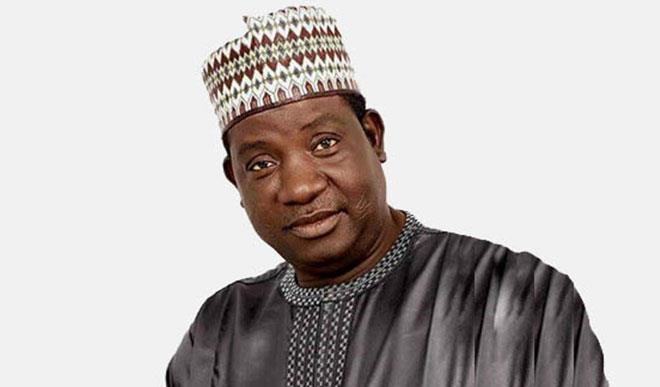Lalong’s 5-point agenda and dwindling resources
Not a few observers are of the view that Governor Simon Lalong of Plateau State has an unenviable task of trying to turn around the fortunes of the state at this moment that its financial challenges seem insurmountable, especially in the face of continuous dwindling federation allocation and poor internal revenue generation. Their concern is […]


Not a few observers are of the view that Governor Simon Lalong of Plateau State has an unenviable task of trying to turn around the fortunes of the state at this moment that its financial challenges seem insurmountable, especially in the face of continuous dwindling federation allocation and poor internal revenue generation.
Their concern is further reinforced by the fact that upon assumption of office, skeptics did not give the governor the chance to successfully weather the storm because he inherited what can best be described as a near failed state from his predecessor, as virtually every sector had collapsed.
According to them, the implementation of Lalong’s 5 Point Agenda is an effort that was dead on arrival, as his predecessor bequeathed to him a state that had over the years been enmeshed in ethno-religious crises; an unprecedented staggering debt burden of N222.3 billion; and an empty treasury.
The governor’s 5 point policy thrust includes peace, security and good governance, human capital and development and social welfare, agriculture and rural development, entrepreneurship and industrialisation, physical infrastructure and environment.
The situation was worsened by the fact that many multi-billion naira projects executed by the last administration were uncompleted, while critical sectors like education, health, solid minerals, tourism, agriculture, human capital, among others, were either in a comatose state or had collapsed completely.
The governor also inherited unpaid arrears of salaries of civil servants, pensioners, and teachers in the state’s public schools, many of which had been on strike for nearly one year.
Distinguished Senator Ibrahim Mantu, a former Deputy Senate President and Peoples Democratic Party (PDP), chieftain, while expressing his view on the financial quagmire and other challenges that were staring Governor Lalong in the face, at a recent stakeholders meeting, said he pitied the governor and wondered if he was aware of the enormity of the problems that the state was facing before picking his nomination form to run for the office.
Mantu told the large gathering of Plateau State stakeholders cutting across party, ethnic and religious divides that he was very sure that the governor would not have an opponent to challenge him for the seat, should he contest for a second term in 2019, given the innumerable problems.
He, however, noted that since the governor had within a record time of six months succeeded in bringing about relative peace and unity in the state, which is the first point in his five point agenda, even if that turned out to be his only achievement, the governor would deserve a pat on the back.
However, not one to be deterred by challenges, Governor Lalong, a lawyer and ex-speaker of the state legislature for seven years, hit the ground running: he formed his cabinet, comprising the best professionals that one could get from the state, such as lawyers, architects, accountants, doctors, engineers, teachers, administrators and political juggernauts.
The governor, in collaboration with German International Cooperation group (GIZ), the Jos Business School and H. Pierson, a consultancy firm, organized a four-day retreat for his cabinet, as well as other key appointees at the prestigious National Institute for Strategic Studies (NIPSS), Kuru, stressing that the ideas generated from the retreat would be used to serve as impetus for the governance of the state.
The retreat entitled ‘Delivering Effective Service in an Era of Dwindling Resources’, which held February 1- 4, attracted resource persons from the Federal Executive Council, respected religious leaders, technocrats, development partners, anti-corruption and security agencies.
Declaring the retreat open,Lalong said: “We have already put in place strategic initiatives and programmes with short and medium term solutions for the actualisation of our 5-point policy thrust, which will be unveiled in this retreat.
“All political appointees in this rescue government must, therefore, start the process of critical thinking on the immediate issues that need attention in their ministries, departments and agencies.
“I must emphasise that discipline, financial management, dedication to duty, sound leadership and strategic implementation of programmes and actions are necessary ingredients for success.”
Mr Rufus Bature, the Secretary to the State Government (SSG), while welcoming the participants and resource persons, said there was urgent need to boost the state’s internally generated revenue in the face of the dwindling resources of the state.
Mr Rotimi Amaechi, Minister for Transport, while drawing from his experience as Speaker of Rivers State House of Assembly and later governor for eight years, respectively, noted that a cordial working relationship between the executive and legislature in a state was strategic for any meaningful development to take place.
Professor Dakas CJ Dakas, Dean Faculty of Law, University of Jos, noted in his contribution that peace and security were the bedrock for any meaningful development.
The participants, at the end of the retreat, made a declaration tagged the ‘Rescue Government Declaration’ which included among others that: members of the State Executive Council be committed to, and driven by fear of God, accountability, integrity, innovation and harmonious co-existence of the people of the state and remain focused on the development of the state in line with the five-point policy thrust of the Rescue Administration.
Also, a communiqué issued at the end of the retreat resolved among others that: in view of dwindling resources and receipts from the Federation Account, government agencies must look inward to expand the sources and Internally Generated Revenue of the state and that three key areas of comparative advantage, namely, agriculture, tourism and mining, be focused on and investments intensified to create employment and boost revenue base for sustainable development.
Longyen is Senior Special Assistant on Media and Publicity to Governor Simon Lalong of Plateau State.
